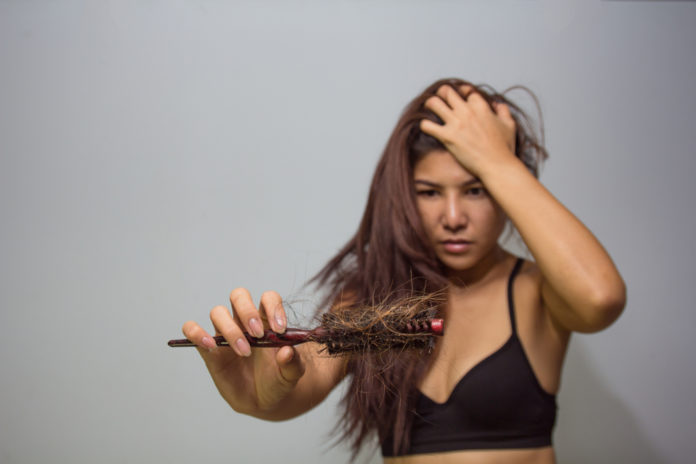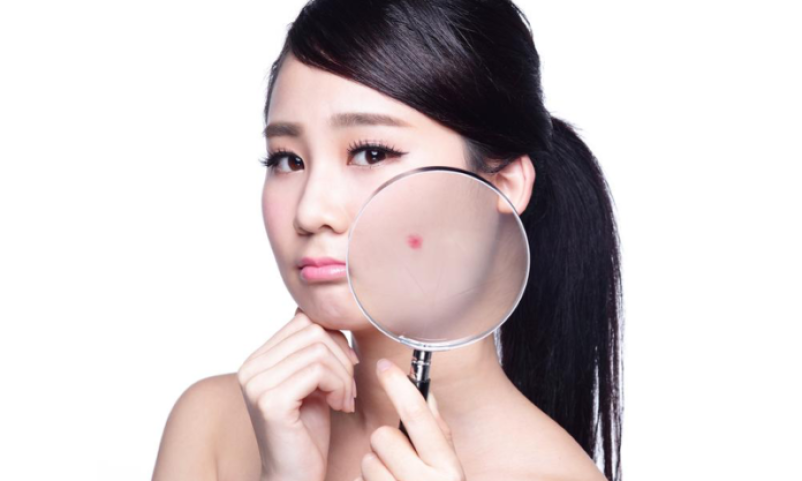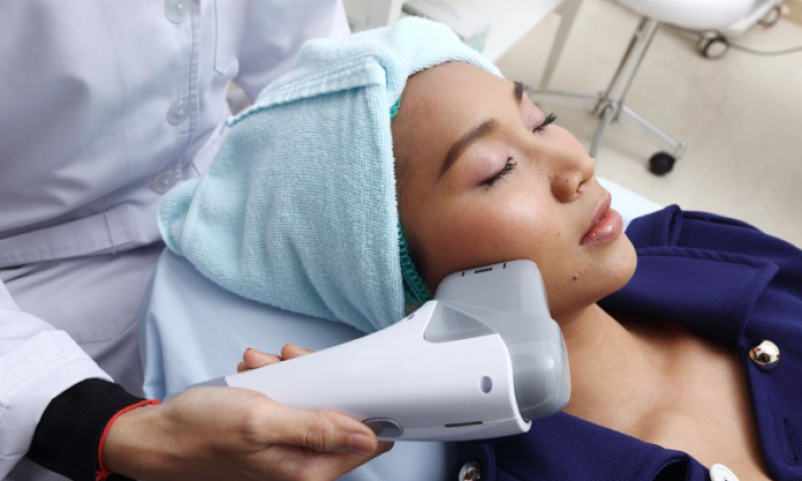It is normal to notice some hair fall. But at what point do you start worrying?
When Should You Be Concerned?
Losing hair can be upsetting at any age, but that’s not to say that you should make an appointment with your doctor every time you see hair falling out.
Hair fall is a completely natural part of the human hair growth cycle. Everyone sheds around 50-100 strands of hair daily regardless of age.
However, if you start to notice a significant increase in hair loss, gradual thinning on the top of the head, growing bald spots, scaly patches on the scalp, as well as a receding hairline, there might be a cause for concern.
7 Common Causes of Hair Loss
Hair loss is often associated with ageing. But it can affect middle-aged adults, teens and even children.
Here are 7 possible reasons why your hair might be falling out.
1. Pregnancy

You might notice more hair loss after delivering your baby. This is because a woman’s estrogen levels are significantly lower after giving birth.
Low estrogen levels are related to slower hair growth. Optimal levels of estrogen keep your hair healthy while low levels could halt hair growth or even cause the hair to get thinner.
The good news is that this is a temporary condition and a woman’s hormones will usually be naturally balanced out within a year after giving birth.
2. Telogen Effluvium
If you notice your hair falling out in clumps during a stressful period, you might be suffering from Telogen Effluvium.
Telogen effluvium is a temporary condition characterized by excessive hair fall and thinning hair. It occurs when the hair is stuck in the telogen (resting) phase.
Aside from stress, this condition could also be a result of several other factors such as:
● physical stress: drastic weight loss, surgery, illness and anemia
● emotional stress: recent loss of a loved one or acute stress
● medication: high doses of vitamin A, blood pressure or gout medicine
During stressful periods, the body undergoes hair loss due to the shutdown of hair production. This enables the body to devote more energy to other vital organs.
3. Traction Alopecia
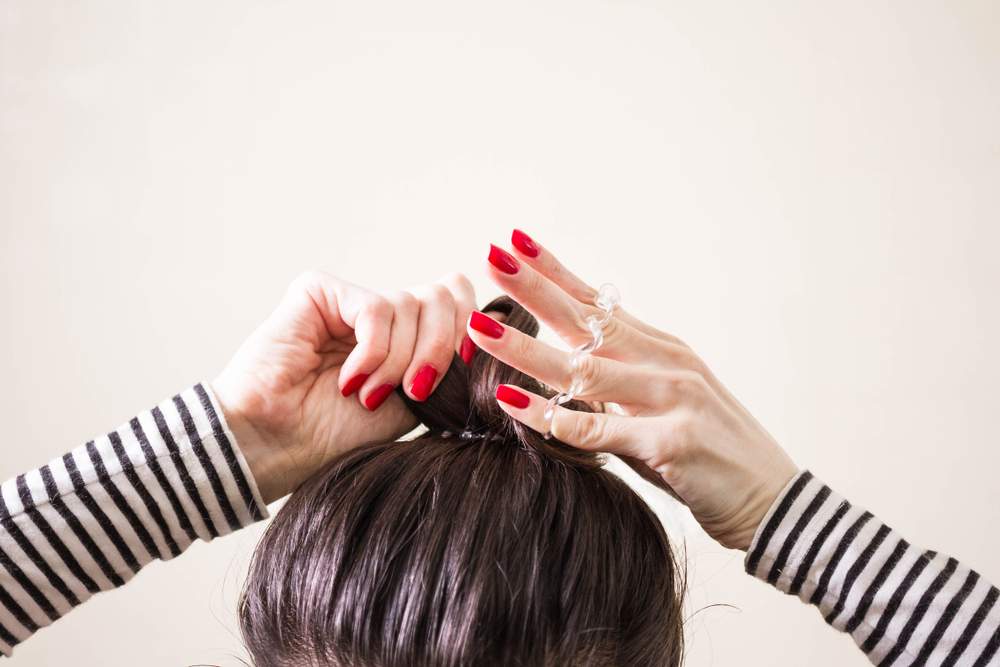
You might want to think twice the next time you tie your hair in a tight sleek ponytail.
While high ponytails and dreadlocks might be trendy looks, these hairstyles are associated with traction alopecia, a type of hair loss caused by tight hairstyles.
Donning hairstyles like tight buns, braids, and cornrows and wearing hair extensions daily could cause the hair to break due to constant stress on the hair strands from the sustained pulling action.
If you are struggling with hair loss, or a receding hairline, it may be beneficial to avoid wearing these hairstyles too often.
4. Nutritional Deficiencies
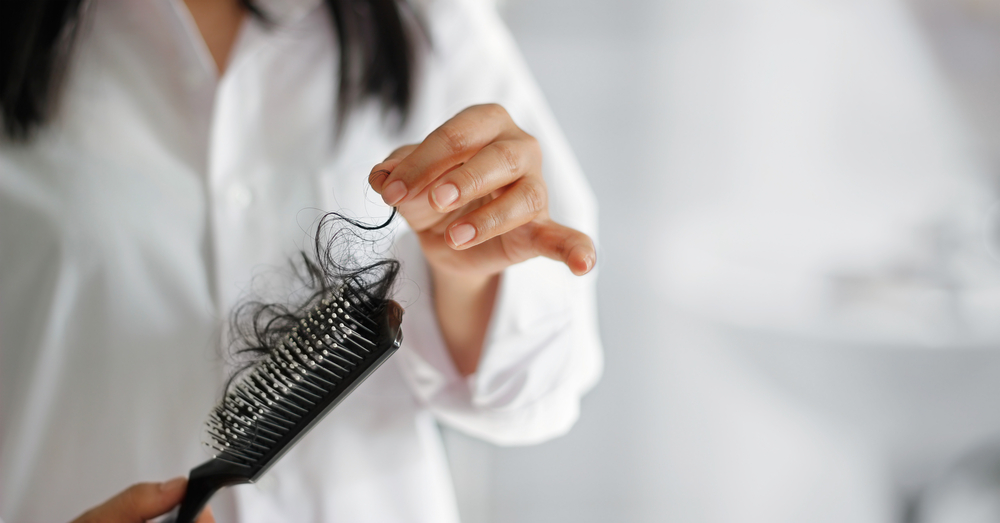
If you notice your hair falling out after embarking on a new diet regime, you might be suffering from nutritional deficiency.
Diets that are low in protein and vitamins like iron and zinc could cause you to experience significant hair loss.
People who are vegetarians, or have a strict vegan diet may be more predisposed to this type of hair loss.
Ideally, a well-balanced diet is essential to ensure you receive a good balance of the necessary nutrients and minerals to reduce hair loss for this reason.
If you are experiencing hair loss, do consider doing a blood test to check if you have any form of nutritional deficiency.
5. Androgenetic Alopecia
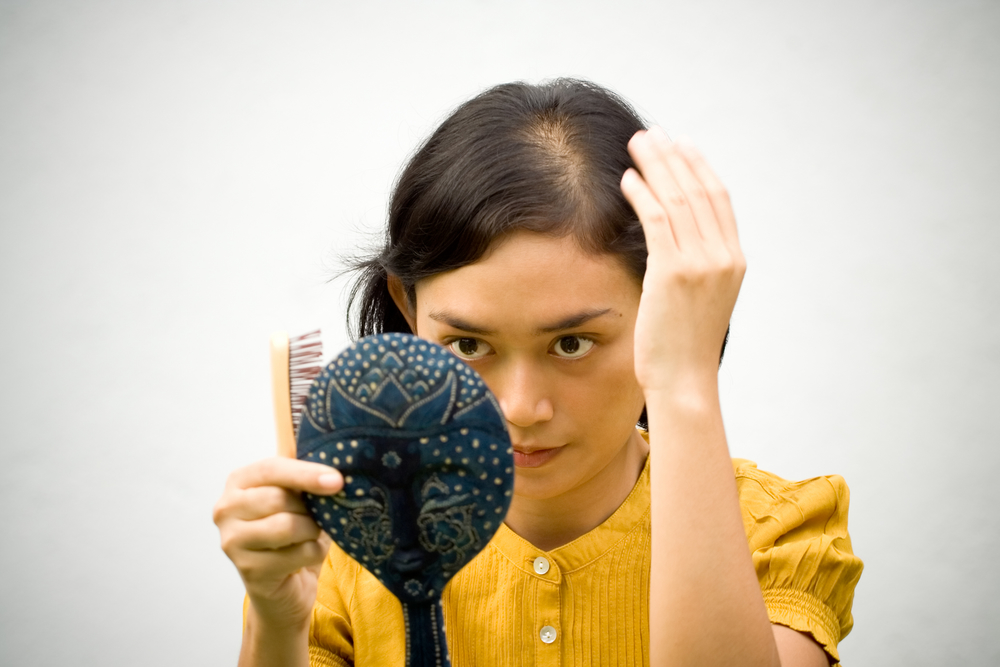
Otherwise known as male or female pattern baldness, androgenetic alopecia affects both men and women as they age. This is the most common form of hair loss.
This condition causes a man’s hairline to recede and form an “M” shape and a woman’s hair to get thinner. Men and women experience this condition increasingly as they age, and it could also happen to women during menopause which suggests a possible relation to hormonal imbalance.
6. Alopecia Areata
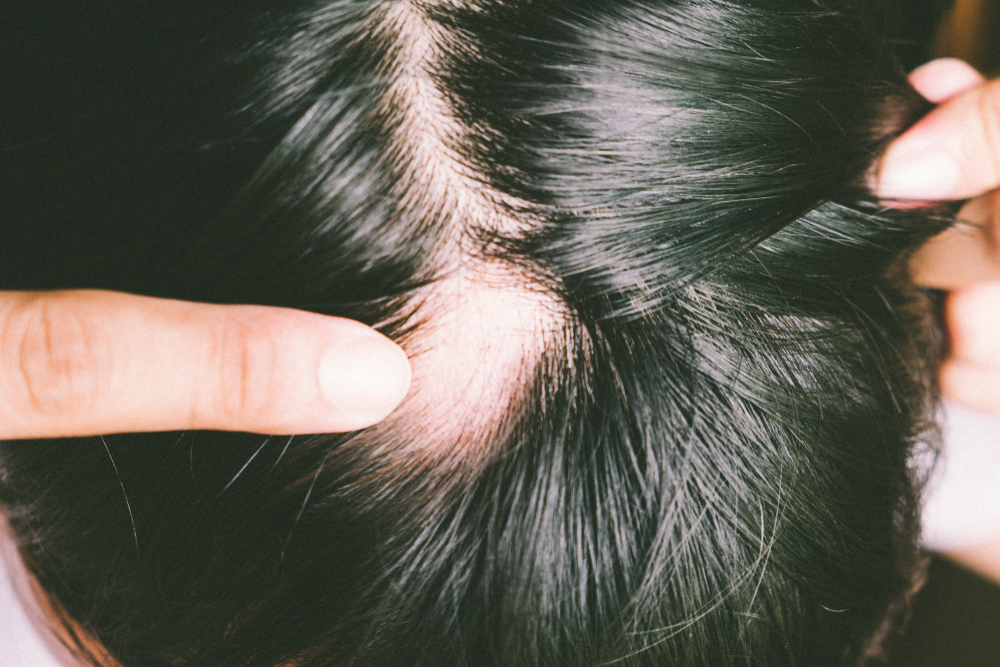
Alopecia areata is an autoimmune disease distinguished by patchy hair loss from the scalp, eyebrows and other parts of the body.
Balding can occur in a single coin-shaped patch or multiple patches in a well-circumscribed area.
If you have alopecia areata, your immune system attacks the hair follicles. This disrupts the hair growth cycle by making the follicles smaller. Over time, it will cause your hair to fall out in clumps and the follicles will stop producing hair altogether.
Severity can range from a small patch to hair loss over the entire scalp. “Exclamation point” hairs are a hallmark of alopecia areata. “Exclamation mark” hair, as the name suggests, is characterized by the classic appearance of small 3-4mm hairs that are wider at the top, then taper progressively to a thinner hair at the scalp. While the exact cause of these “exclamation mark” hair is unknown, it is stipulated that it is due to the inflammation that occurs with Alopecia Areata.
7. Thyroid Problems
Thyroid disorders occur when your thyroid gland overproduces or fails to produce adequate thyroid hormones.
When the production of T3 and T4 hormones are disrupted, you might find yourself losing more hair. Thyroid disorders could also upset your hair growth cycle and prevent new hair from growing.
When To See A Doctor
While losing typical amounts of hair can be a natural occurrence, it is not normal to be losing a significant amount or to be experiencing so much hair loss that it affects your appearance and self-esteem.
Today, there are many different treatments available that can be used to investigate the root cause or treat hair loss like Regenera Activa.
On top of this, it is important to note that hair loss is not a symptom to be brushed off as it may be a presenting symptom of a more serious underlying illness.
If you have been experiencing any hair loss symptoms that are similar to those that we have mentioned above, we recommend getting a consultation early to get your problem treated!


